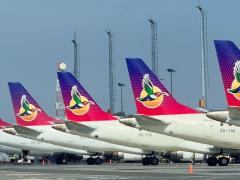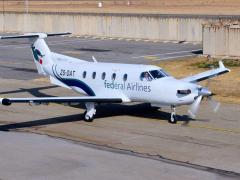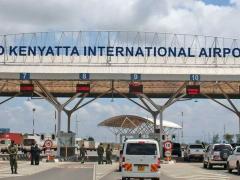The Tanzanian government will introduce a new Passenger Facilitation Fee, under the VI Tax code, which will apply to all international air passengers from November 1.
The fee will be US$45 (R794) per passenger for one-way international journeys into Tanzania and $90 (R1 588) for international return trips. Infants under two years old will be exempt.
The fee will be collected at the point of sale and displayed separately on the ticket. Travellers will be given full refunds in the event of trip cancellations or unused tickets.
Hiked airfares
Airlink and FlySafair confirmed that the fee would apply to their Dar es Salaam and Zanzibar flights, respectively.
“On one hand, it adds pressure on airlines trying to sell flights to and from Tanzania. At the same time, it makes airlines look like the bad guys by raising ticket prices when in fact it has nothing to do with us. We’re simply obliged to collect the taxes on the government’s behalf,” said the Airlink spokesperson.
Kamil Al Awadhi, IATA Regional VP for Africa and Middle East, told Travel News that the new fee exacerbated Africa’s already expensive operating environment, hindering connectivity, mobility, economic growth and trade.
“In Africa, taxes, fees, and charges are already 12-15% above the global average, making it one of the most expensive regions for airlines to operate. Further unjustified increases only add to the burden on passengers and undermine the role of aviation in connecting people and economies while affecting the destination’s competitiveness,” said Al Awadhi.
“We urge the Government of Tanzania to work with the industry and align with ICAO principles to ensure air travel remains accessible and economically beneficial.”
New technology
According to the Tanzania Civil Aviation Authority, the fee will be used to support the installation of Advanced Passenger Information (API) and Electronic Border Control (eBMC) systems for international passengers arriving at airports in the country.
The API system will forward passenger information to the state prior to flight departure, enabling Tanzanian administration to decide on the admissibility of passengers prior to arrival.
The introduction of API and Passenger Name Record systems will eventually be complemented by eBMC, including e-visa and travel authorisation systems for pre-arrival vetting and streamlined visa processing; an Integrated Immigration Control System for seamless entry and exit control and integration with national databases; and an Intelligent Information Management System for data analytics, profiling and case management.
“Given the cost associated with implementation of this project, including but not limited to the cost of data processing, system modernisation and regulatory compliance including data privacy standards and cyber security enhancements, reliance on government financing is costly and may not be sustainable. It is therefore proposed that funding shall be sourced from the international arrivals at the airports in the United Republic of Tanzania,” the TCAA said in its proposal for the fee on June 16.













